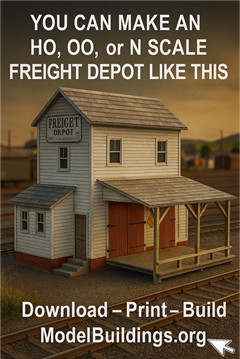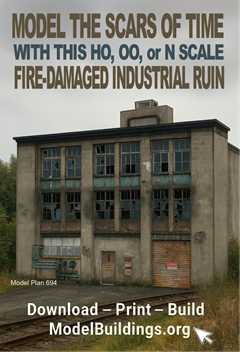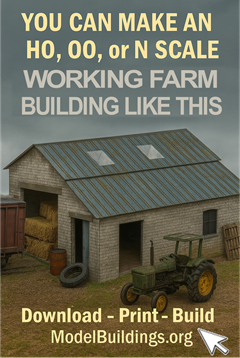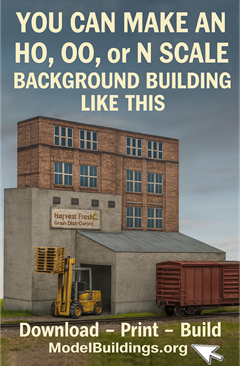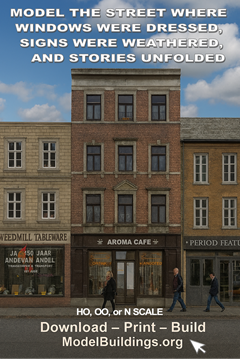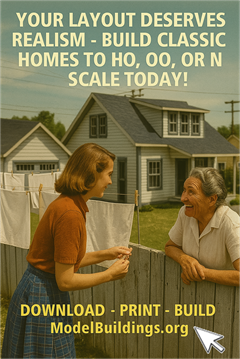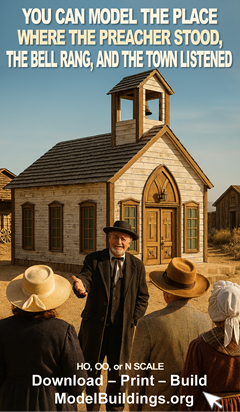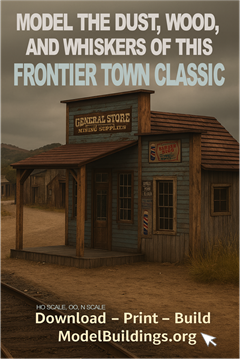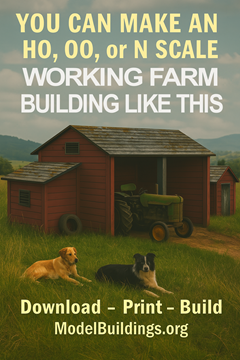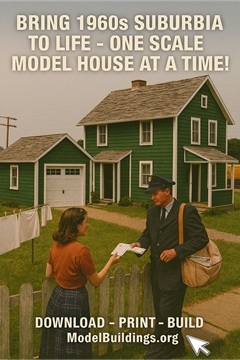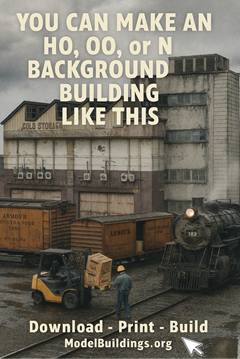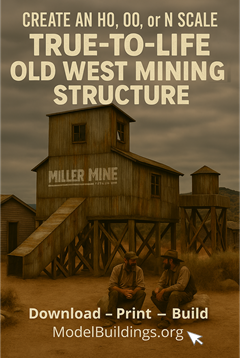Everything on model trains, model railroads, model railways, locomotives, model train layouts, scenery, wiring, DCC and more. Enjoy the world's best hobby... model railroading!
Reed detector
Daniel asks:
“Dear all model train guys, I’ve decided to built up my Marklin HO layout by myself. Big challenge! I am trying to understand digital and electronics, would you please give me an explanation about a Reed detector, how it works and how is connected to the CS 3 or K84? Deeply appreciate your suggestions.”
Z Scale Battery Controller
Phil a Z scale enthusiast asks:
“Is there a way to utilize a Rokuhan Z gauge battery train controller (RC03) to power non-Rokuhan accessories such as street lights and scratch built carnival rides, as well as power the train? Rokuhan does not sell the sockets separately that fit into their accessory power terminal (A016) which links to their RC03 controller…. Alternatively, I require a battery controller for a Z scale suitcase layout I am currently constructing. Is there any other battery controller that would do the job (power train and accessories) that anyone is aware of?”
Building a Display Case for Trains
Ed models HO and asks readers:
“I have a shelf to use for display case? What should I make it out of? I have about 10 foot shelf, and I will display a single train on the entire shelf length. It’s an H O Marklin peat train, Peat locomotive and peat wagons.”
S Scale American Flyer Engine Repairs
John asks readers:
“Do you know someone who works on American flyer older engines? Let me know one way or the other. The trains are late 1940sor early 50’s. Thanks.”
Magnet Wire or Stranded Wire For Rewiring Locomotives?
Bradon asks:
“I was going to use an old roll of magnet wire to rewire locomotives, but a friend said I should use stranded teflon coated wire instead. Thoughts?”
Post your comment (and view comments) below.
Dimensions For Mountains and Hills
Ron models HO and asks:
“I want to add a small hill in the foreground and some mountains for my trains to pass through further back on the layout. I’m more concerned about the mountains because I will need probably two tunnels and am not sure of the correct dimensions to make the mountains so they don’t overly dominate the scene or take up too much space. I don’t have tall superliners, so working on an average height of 2 inches I thought the tunnel clearances should be another inch. I’m just not sure how tall, wide, and deep to make the mountains bearing in mind I’ll have a bridge crossing a canyon between the mountain tunnels as a feature. What would your readers suggest? I know I will need a couple of hatches to get to train derailments.”
Add a comment and view the comments blow.
Constructing Super-Realistic Industrial Silos
Buying ready-made plastic scale model industrial silo kitsets can be very expensive before you even consider the cost and work involved in painting and weathering the kits with an airbrush to achieve a realistic representation of the real thing. The easier, and cheaper way is to download plans to make your own silos without having to do the painting or airbrushing. Plastic models when done well can look very impressive, as can models made from downloaded plans. It just comes down to which type you prefer, how skilled you are at weathering and airbrushing, and the extent of your budget. This video shows some silos you could make using downloaded plans.
3 Switches Without Track?
Gary who models O scale asks:
“I have a situation where I need to put three switches in a row, with no track sections in between. Will this arrangement give me a problem? Due to the design of the layout, I need this setup. Appreciate any suggestions or comments.”
What Is The Correct Height For A Station Platform?
Max seeks help:
“I am modelling German N gauge and wonder what height platforms should be as in Germany there seem to be varying heights?”
Plaster Crumbling on Rails Inside Tunnel
Glenn sent in this question:
“My late father built his railroad over about 20 years and it is sill set up in the garage and me and my 2 boys get to use it. I am trying to learn some technical stuff for when something goes wrong. When we visited last weekend we noticed some tiny flakes of plaster inside the tunnel. It is old and I think the problem will get worse. I can get my hand inside the tunnel thru the secret door thingy. What should I do to stop more plaster falling?”
View the comments below, or post your own comments or suggestions to help Glenn.
Confused Selecting Feeder and Buss Wires and Suitcase Connectors
Anthony needs help from experienced railroaders:
“I’m underway with my new HO setup. I will have a couple of runs of over 50ft. I don’t want to soldier direct to the rails unless I absolutely need too. I read that suitcase connectors are the way to go but I’m unsure what feeder and buss wires to use and the color connectors to use?”
Add your comments (or view comments) below.
Make 13 High-Quality, Super-Realistic Old West Town Structures That You Can Be Proud Of Displaying (Even If You Have Never Downloaded, Printed, And Constructed Your Own Model Buildings Before)
The old wild west US frontier conjures up all kinds of fantasies and wonderful memories of viewing cowboy movies starring the likes of Clint Eastwood and John Wayne, or watching memorable TV series including: Gunsmoke, Bonanza, The Virginian, The High Chaparral, Rawhide, Laramie, Little House on the Prairie, Walker Texas Ranger, The Big Valley, How the West Was Won, Maverick, Daniel Boone, The Lone Ranger, Alias Smith and Jones, F Troop, Hopalong Cassidy, The Roy Rogers Show, and even The Adventures of Rin Tin Tin to mention some of the many popular old western series on television viewed worldwide. Phew! That’s a long list and goes a long way to explaining why tales of gunslingers striding down the middle of a muddy or dusty street, dispatching rival outlaws with a bullet from their holstered side arm, encompasses the old wild western legend most of us “oldies” have come to remember. It is understandably a reason why choosing to model old wild western town structures on a scale model railroad has capivating appeal for baby-boomer model railroading enthusiasts.
Now, thanks to https://www.modelbuildings.org there is a expanding library of downloadable model plans displaying old wild western buildings such as a sheriffs office, saloons, Bank, telegraph office, blacksmiths, church, dry goods store, hotel, general store, gun smith, barbers shop, stage depot, and school house. The old wild west town models in this series nicely complement the interesting range of mining town structures also available as downloadable models.
Correct Power For Lights & Accessories
Kirk asks:
“I am just beginning to build a small [3′ x 7′] HO layout and I plan on having quite a few lights and accessories that will require a power source. What would be the best power source, and what voltage/ amperage would be required? I know that I may need to use resistors also. Thank you much for any suggestions you can lend.”
Add or view comments below. Use “ASK A QUESTION” link to have your question published.
Temperature For Soldering Feeder Wires?
Brian models HO and has this question:
“I always used a large Weller soldering gun. My birthday present was a soldering station with a variable temperature iron. The question is what temperature should I be using for soldering feeder wires to HO code 83 nickel silver track?”
Add you comment (or view comments) below. Submit your question for publication using link underneath.
N Scale Bachmann
Roberto wants to model N scale and asks readers:
“I want to start laying a small track within a space of 24″x48″ I bought Bachmann tracks and wish to form a layout using these tracks. Someone could help me providing with some layout plans showing the tracks identification please?”
Turnout Confusion
George a newcomer to N scale poses these questions:
“I have a simple oval layout with two turnouts, both Kato #6 ( 1 ea. Left (R718-15^) and 1ea. Right (R718-15^)). The turnouts provide switching to an inside partial oval that parallels portions of straight sections in the middle of the oval, and the arcing section of the oval at only one end.
The problem I have is this:
1) If I throw both turnouts from the straight to switched position in preparation of my train accessing in the ‘inside’ leg, there is no power on my mainline and the train comes to a stop.
2) If I throw the first turnout (the #6 Left) to the switched position by itself to get the train onto the inside leg, I then have to throw it back to the straight position while simultaneously throwing the second turnout (the #6 Right) from the straight position to the switched position to get the train back onto the mainline.
3) There is no way to set the two switches so the train runs continually from the mainline to the inside leg without manipulating these turnouts as I’ve described.
I just started in this hobby a couple of weeks ago, so my ignorance is profound! But you see, I have a grandson ‘on the spectrum’ who is fascinated by trains and who I hoped would enjoy running trains with me, but this switching scheme is a frustration to him when he attempts to run the train.
Is there a remedy?”
Stoneridge Creek Retirement Facility Display
Eugene sent in this photo to share.
San Francisco and East Bay RR. (SF&EB RR) in the Stoneridge Creek Retirement Facility in Pleasanton California. Four gauges – BART (Bay AreaRapid Transit), HO, Z and Tiny.


